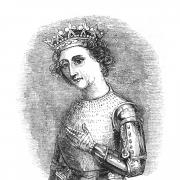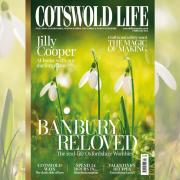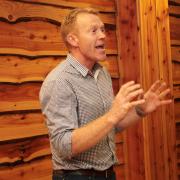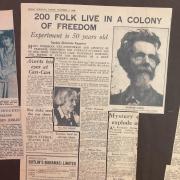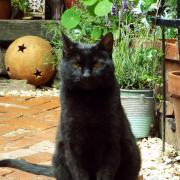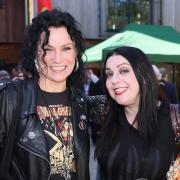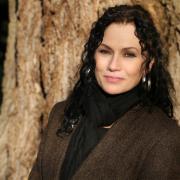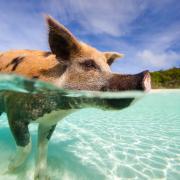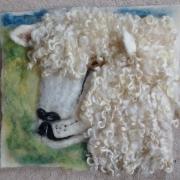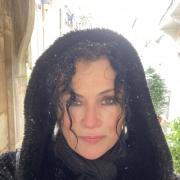Adventures with Hereward Corbett of the Yellow-Lighted Bookshops
Book festivals are important. They help bring communities together, encourage the sharing of ideas and experiences, while giving us something to look forward to, and something to look back on. They generate energy and enthusiasm, help us better understand who we are as individuals and communities, and help us reflect on what we might do differently. And they are an opportunity to be reassured and maybe challenged a bit as well.
In 2020, we had a brilliant festival (we called it The Big Book Weekend) lined up and ready to go, and the whole thing ended up being cancelled, and we’ve rather had our hands full simply surviving ever since. This year, we have moved the date to September, and are approaching it quite cautiously (who knows how much a tin of baked beans will cost by then?), but we think we have a belter of a schedule.
Festival programming is not straightforward. We have a sense of which books we can sell, but author events are different. Firstly, you have to be enthusiastic about your programme. If you’re not excited, how can you convince others?
Secondly, though, you have to be commercial. We can’t afford to lose money. That experimental new novel by an unknown author may well be brilliant, but if it’s not going to appeal to our older, rural, generally literate market, there is little point in trying to put it on. And, similarly, while we do have many excellent local authors, their locality is no guarantee of sales to the wider public.
READ MORE: Tales from the bookshop with Hereward Corbett.
We are also beholden to publishers and what they publish. Festivals generally revolve around new titles because those are the authors who are “on the circuit”, but we have to balance that against both the criteria above, and what you could call our USP as a bookshop. I dare say that we could sell loads of tickets for events with celebrity authors, TV chefs and sports personalities. In fact I’d like to do a bit more of that. But too much wouldn’t be us.
So, we aim to achieve a balance. A few better-known names, some interesting topics, and a little bit of left-field thinking – and, hopefully, it will work.
It could be that Natalie Haynes, Elizabeth MacNeal, Eric Ravilious and The Ragged Trousered Philanthropists aren’t your thing. Twentieth-century British female artists like Gwen John and Vanessa Bell might leave you cold. Improving your composting skills, understanding our history, and what made Roald Dahl the writer he was may hold no interest for you. And how a young family survived the pandemic in a rural village, or rethinking rewilding might make you want to run a mile.
But, hopefully not. It would be lovely to see everyone there.
The Big Book Weekend runs September 9-11 at Tetbury Goods Shed. Visit yellowlightedbookshop.co.uk and shed-arts.co.uk for more information.
Follow Hereward on Twitter: @YLBookshop
BOOK REVIEWS

Stone Blind
by Natalie Haynes
Natalie is an extraordinary writer and performer. Medusa was a mortal – but her Gorgon sisters were not. She realises that her mortality means that she has advantages over them and a self-awareness that leaves them irredeemably flawed, while she can change… and change she does.
Macmillan, £25

Look! We Have Come Through!
by Lara Fiegel
This is an extraordinary book. Like the rest of us, Lara and her young family found themselves having to deal with lockdown in 2020. Unlike the rest of us, Lara (Professor of Modern Literature at Kings College, London), used DH Lawrence as an inspiration and guide to getting through the pandemic, and for thinking differently about their lives.
Bloomsbury, £20




